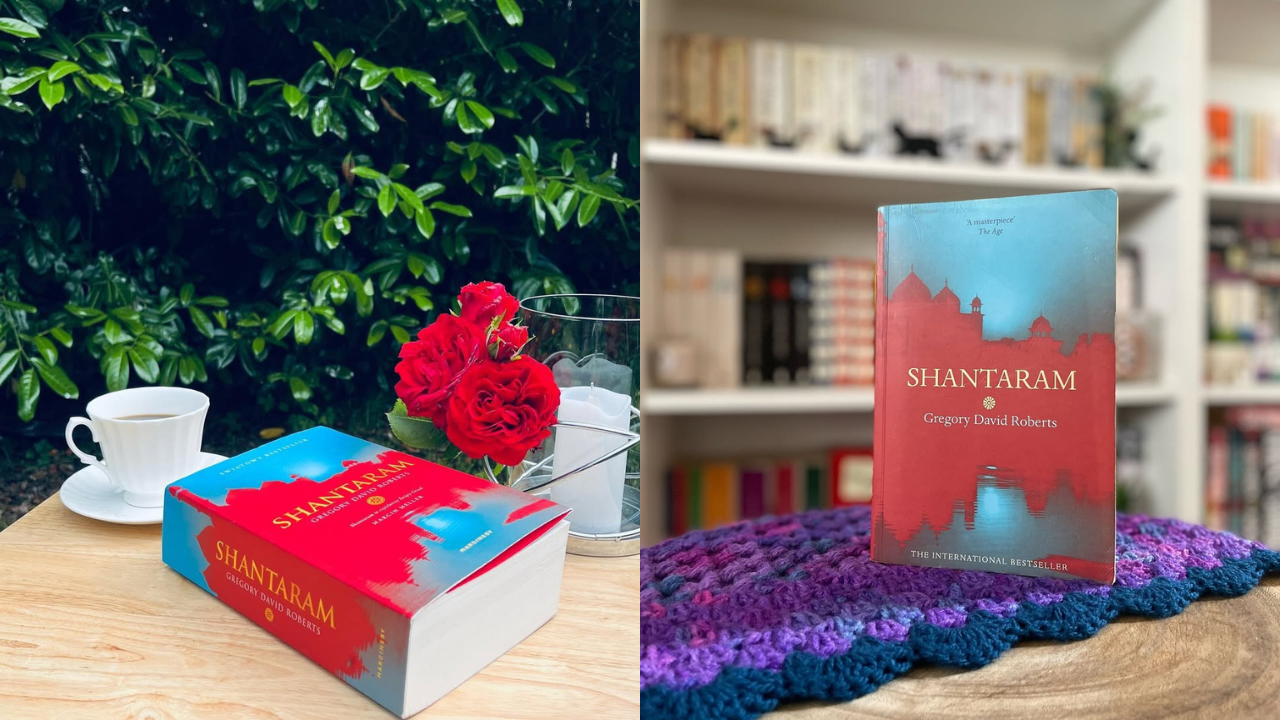Trending:
How Shantaram Became a Completely Different Story in Its Screen Adaptation
What happens when a novel built on introspection and chaos is recast for the screen? The novel 'Shantaram' trades its soul for spectacle, leaving fans of the book to reconcile with a story that feels both familiar and unrecognisably distant.

How Shantaram Became a Completely Different Story in Its Screen Adaptation (Picture Credit - Instagram)
When Gregory David Roberts released 'Shantaram' in 2003, readers were instantly drawn into its sprawling, semi-autobiographical tale. Set in the gritty bylanes of Bombay and infused with crime, redemption, love, and philosophy, it was the kind of epic that felt almost cinematic already. A film or series seemed inevitable. But when the Apple TV+ adaptation finally premiered in 2022, many fans were left disoriented. The texture had shifted. The rhythm had changed. The soul, some claimed, felt diluted.
A Layered Novel that Defied Easy Categorisation
At 900+ pages, 'Shantaram' is a dense tapestry. Roberts built it from lived experience: escaping prison in Australia, hiding out in India, starting a free clinic in a slum, and working with the mafia. It blends thriller, memoir, spiritual reflection, and cultural study. That narrative sprawl was both its charm and challenge. Translating that into a screen format required choices. But in streamlining the story for episodic TV, much of the novel's philosophical introspection and internal monologues were stripped away, making space for more traditional drama.
Character Arcs Rewritten for Accessibility
In the book, Lin is a deeply introspective man haunted by guilt and driven by a yearning to do good, even within a violent world. His journey is marked by internal contradictions. In the series, Lin (played by Charlie Hunnam) becomes more of a reluctant hero caught in predictable conflicts. Secondary characters like Prabaker, Karla, and Khaderbhai are reimagined to fit familiar tropes, often losing the ambiguous moral tones that made them compelling in the novel. This reworking was perhaps a bid to reach a broader global audience, but it altered the moral fabric of the story.
Shifts in Setting and Pace
'Shantaram', the book immerses readers in Bombay’s vibrant, chaotic life. Roberts’ prose lingers on sights, smells, languages, and spiritual metaphors. The adaptation, though visually rich, often rushed through key scenes. Where the novel allowed readers to dwell, the show moved swiftly, prioritising tension over immersion. The series’ production delays and changes in directors may have contributed to a fragmented tone, veering between thriller, romance, and political intrigue without anchoring the viewer emotionally.
From the Internal to the External
The most significant change, arguably, is the shift from internal to external storytelling. Roberts' novel lives in Lin’s mind. Much of its richness comes from how he processes trauma, identity, and his place in a strange land. The show externalises these themes, often reducing them to dialogue or action. Philosophical meditations are hard to dramatise, but their absence left the adaptation feeling more like a standard crime drama than the spiritual odyssey the book offered.
Why the Change Matters
Adaptation is never replication. It's an interpretation. And in this case, the adaptation of 'Shantaram' reminds us how the media moulds stories. A 900-page novel invites solitude and contemplation. A streaming show demands pace and clarity. The screen version isn’t without merit—it captures the city's energy and boasts a committed cast. But it becomes a different beast. For those who cherished the book’s poetic chaos, the series might feel like a stripped-down echo.
If you’ve seen the show but haven’t read the book, you haven’t truly met 'Shantaram'. The novel breathes with messiness, contradiction, and grace—the very qualities TV often cannot sustain. It’s not about which version is better. It’s about what each one can hold. The book holds complexity. The show holds accessibility. The true reward lies in experiencing both and understanding what gets lost and found in translation.
'Shantaram' was a tale of nuance, emotion, and philosophical weight. What the screen version gains in pace and global packaging, it loses in spiritual depth and character complexity. The novel invites readers to slow down and reflect; the series asks viewers to keep up and consume. Both have value, but only the book offers the intimacy that made 'Shantaram' unforgettable. That difference is worth savouring.
Get Latest News Live on Times Now along with Breaking News and Top Headlines from Books, Lifestyle and around the world.

Girish Shukla author
A dedicated bibliophile with a love for psychology and mythology, I am the author of two captivating novels. I craft stories that delve into the intri...View More
End of Article
Subscribe to our daily Lifestyle Newsletter!






Matt Preston Returns To The Lanes Of Old Delhi For A Food Walk, Enjoys Flavourful Nalli Nihari, Kebabs And…

As Pope Leo XIV Takes Charge, Here Are Some Weird Food Rules That The Conclave Had To Follow

A Timeless Call to Patriotism - 54 Years Later, Atal Bihari Vajpayee’s 1971 War Speech Still Hits Hard

Why Indian Army, Navy And Air Force Have Three Different Salutes - Explained

When Terror Shook Us All: A Teenager’s Memory of IC-814 Hijack as Masood Azhar Returns to Headlines













